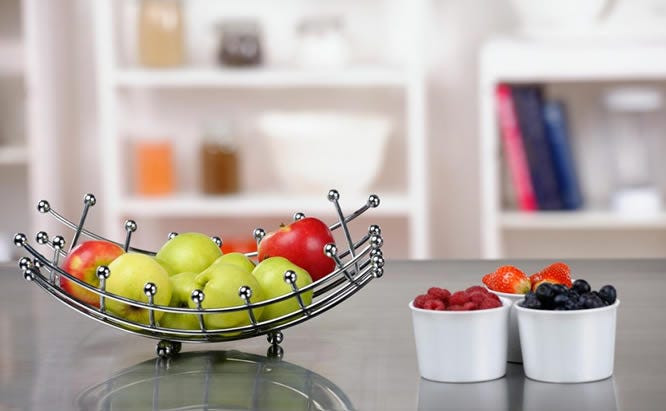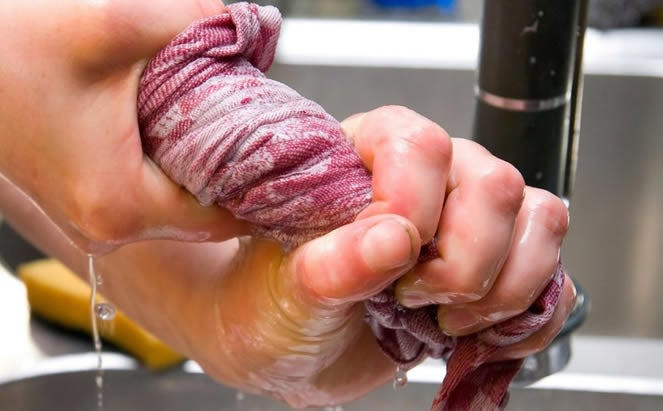Dealing with fruit flies can be a year-round nuisance. These tiny pests appear seemingly out of nowhere, buzzing around your kitchen and feasting on your favorite fruits. It’s natural to wonder if the arrival of winter and colder temperatures might finally offer some relief. Specifically, Do Fruit Flies Die In The Cold? This article dives deep into the fascinating world of fruit flies to answer this question and provide a comprehensive understanding of their survival strategies, especially when the mercury drops.
Understanding Fruit Fly Behavior and Cold Weather
To understand how cold temperatures affect fruit flies, it’s helpful to know what attracts them in the first place. Fruit flies are primarily drawn to the scent of ripe and fermenting fruits and vegetables, making kitchens and pantries prime targets. They are also attracted to sugary substances, alcohol, and even damp, decaying organic matter found in drains and garbage disposals.
What Attracts Fruit Flies?
Fruit flies are opportunistic feeders with a keen sense of smell for:
- Ripening Produce: Overripe fruits and vegetables are their primary food source.
- Fermented Liquids: Alcohol, sugary drinks, and even spills are irresistible.
- Decaying Organic Matter: Damp mops, sponges, and garbage disposals can harbor fermenting residues.
These attractants are present throughout the year, but how do fruit flies cope when temperatures plummet?
Can Fruit Flies Make You Sick?
Before we delve into cold weather survival, it’s important to address a common concern: can fruit flies pose a health risk? While they aren’t known to bite or sting, fruit flies can indeed pick up and transmit bacteria and contaminants. They frequent unsanitary locations like garbage and drains, and then land on your food.
Furthermore, fruit fly larvae developing in decaying fruit can cause stomach upset if accidentally ingested. It’s best to avoid consuming food that has been in contact with fruit flies.
 fruit bowl
fruit bowl
A bowl of ripe fruit, an attractant for fruit flies, sitting on a kitchen counter.
Where Do Fruit Flies Lay Eggs?
Fruit flies are strategic breeders, laying their eggs near their food source. Overripe or rotting fruits and vegetables are ideal nurseries. The adult female fruit fly pierces the skin of the fermenting produce and deposits her eggs inside.
However, fruit flies are not limited to fruit. They can also lay eggs in:
- Sludge in Trash Cans: The goopy buildup at the bottom of trash cans.
- Garbage Disposals: Food debris creates a breeding ground.
- Drains: Moist and organic matter-rich environments.
- Appliance Seams: Hidden crevices can accumulate sludge.
Even small amounts of fermenting material can support fruit fly eggs and larvae.
Can Fruit Flies Live in Drains?
Drains are surprisingly hospitable environments for fruit flies. They offer both food (accumulated organic matter) and moisture, essential for fruit fly survival and reproduction. While you might think flushing drains with water would eliminate them, fruit flies are resilient and can often withstand the flow.
It’s also crucial to distinguish fruit flies from drain flies. Drain flies, often mistaken for fruit flies, are fuzzy, moth-like insects that also breed in drains. Identifying the pest correctly is the first step to effective control.
Fruit Flies and Cold Temperatures: The Impact of Winter
Now, let’s address the core question: do fruit flies die in the cold? The simple answer is not entirely, but cold weather significantly impacts their lifecycle and activity.
Do Fruit Flies Die in the Winter?
Winter weather doesn’t eradicate fruit fly populations entirely, especially in regions with milder winters. However, cold temperatures play a crucial role in slowing down their development.
Scientific studies show that:
- At 60°F (15.5°C): Fruit fly lifespan decreases.
- Below 53°F (11.7°C): Fruit fly development halts completely.
While cold temperatures inhibit development, adult fruit flies possess a survival mechanism called “overwintering.”
Fruit Fly Overwintering
Overwintering is a strategy that allows adult fruit flies to survive harsh winter conditions. They become less active and seek sheltered locations within homes or buildings where temperatures are relatively warmer. This allows them to endure frigid temperatures and resume reproduction when favorable conditions return in spring.
Therefore, while cold slows them down, it doesn’t eliminate them completely. Fruit flies can persist indoors throughout the winter.
Can Fruit Flies Get Through Screens?
Another common question is how fruit flies enter homes. Their minuscule size raises concerns about their ability to penetrate screens. The truth is, it depends on the screen and the opportunity.
- Screen Mesh Size: Some screens, particularly older or damaged ones, may have mesh sizes large enough for fruit flies to squeeze through.
- Other Entry Points: Screens aren’t the only access points. Fruit flies can enter through:
- Open doors and windows.
- Gaps in building structures.
- Plumbing entry points.
Sealing cracks and gaps and ensuring screens are in good repair are crucial steps in preventing fruit fly entry.
Why Are Fruit Flies in My Room?
Fruit flies are not confined to kitchens. If they find food sources in bedrooms, bathrooms, or living rooms, they will establish themselves there. In rooms not typically associated with food, investigate potential attractants:
- Spilled Food or Drinks: Even dried spills can attract fruit flies.
- Moist Carpets: Spills of sugary drinks can create fermenting spots.
- Bathroom Drains and Garbage Cans: Sludge buildup in bathrooms is a common attractant.
Thorough cleaning is essential to eliminate these unexpected fruit fly hotspots.
Will Fruit Flies Die on Their Own?
If you ignore a fruit fly infestation and maintain impeccable cleanliness, will they eventually disappear? Theoretically, yes. Without food and breeding sites, a fruit fly population will eventually dwindle.
However, waiting it out is impractical and unpleasant. Effective and faster solutions are readily available, such as fruit fly traps.
A TERRO® Fruit Fly Trap, a product designed to effectively capture and eliminate fruit flies.
Why Are Fruit Flies in My House Plants?
If you notice flies around houseplants, they might not be fruit flies but fungus gnats. Fungus gnats are soil-dwelling insects that thrive in moist potting mix. While fruit flies are tan with red eyes and resemble small house flies, fungus gnats are more mosquito-like in appearance and behavior, rarely venturing far from their plant source.
How to Get Rid of Fruit Flies, Even in Cold Weather
Regardless of the season, effective fruit fly control requires a two-pronged approach: trapping and sanitation.
-
Use Fruit Fly Traps: Commercially available fruit fly traps are highly effective and easy to use. They lure fruit flies in and prevent escape. DIY traps can also be made, but pre-made traps offer convenience and often better results.
-
Thorough Cleaning: Eliminate attractants by:
- Removing overripe produce.
- Emptying and cleaning trash cans.
- Cleaning appliances, especially dishwashers.
- Scouring cabinets for food residue.
- Flushing drains with cleaner.
- Keeping sinks dry.
- Cleaning or discarding damp cleaning supplies.
By combining trapping and rigorous cleaning, you can effectively manage fruit flies, even during colder months when they may be less active but still present indoors.
 wring rag
wring rag
A hand wringing out a damp cleaning rag over a sink, highlighting the importance of cleaning to remove fruit fly attractants.
Your Fruit Fly Control Strategy: Year-Round Vigilance
While cold weather slows down fruit fly development and may reduce outdoor populations, indoor infestations can persist throughout the year due to overwintering and consistent access to food sources within homes. Understanding do fruit flies die in the cold reveals that cold is not a complete solution. Year-round vigilance, combining sanitation and trapping methods, is the most effective strategy for keeping your home fruit fly-free, regardless of the season. For reliable fruit fly solutions, consider exploring TERRO® Fruit Fly Traps to effectively manage these persistent pests.